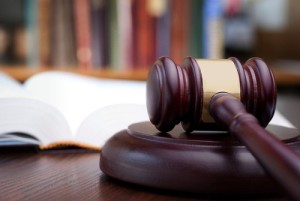Almost two years ago now, Medicaid/Medicare liens became even more difficult to deal with as the law pushed to the lawyers and insurance companies the obligation of confirmation and resolution of Medicare/Medicaid liens. I’m sure betting an insurance company has yet to receive a fine for not verifying a lien before paying a personal injury settlement. But nobody wants to be the first.
Medicare, Medicaid and State Children’s Health Insurance Program Extension Act of 2007 created so many headaches people starting fighting back. In Haro v. Sebelius, an Arizona case in U.S. District Court, Medicare beneficiaries (and, interestingly, a personal injury lawyer in his own capacity) challenged – as a class – two things: (1) Can Medicare/Medicaid (hereinafter “Medicare because I’m sick of the slash) “require prepayment of a reimbursement claim before the correct amount is administratively determined where the beneficiary either appeals or seeks a waiver of the MSP reimbursement claim?, and (2) Are personal injury lawyers financially responsible for reimbursement if they do not hold or immediately turn over to Medicare their clients’ personal injury settlement awards.
Personal injury lawyers are completely in a pickle on these liens. Our clients want their money; we want to get them the money they are entitled to get. The question is whether personal injury attorneys are precluded from giving the clients their settlement money until after Medicare’s claim has been satisfied, and, let’s be honest, whether Medicare can recover the reimbursement claim directly from the attorney if the client cannot pay the reimbursement claim after the settlement money has been turned over to the client.
It is worth noting here that there is no reported case that has considered whether a direct recovery action against a personal injury attorney, pursuant to 42 U.S.C. § 1395y(b)(2)(B)(ii) and 42 C.F.R. § 411.24(g), is enforceable because, arguably, there is no express contract with the Government. But the prevailing wisdom is that it is a restitution claim and everyone accepts the premise that Medicare may come back against attorneys and, just like insurance companies, no lawyer wants to incur Medicare’s wrath.
Anyway, the court in Haro v. Sebelius injects some common sense into the conventional wisdom, finding that there is no statutory authority, express or implied, to support direct action against attorneys, except to the extent they are end-point recipients of settlement proceeds. The court acknowledged the obvious: Medicare is putting personal injury lawyers in a quandary with their clients that is not supported by the statute. So, essentially, Medicare cannot hold plaintiffs’ personal injury attorneys responsible for liens and cannot require them to either turn the settlement awards over to Medicare or hold the settlement sums in trust.
Medicare also cannot demand immediate payment from Medicare beneficiaries while the reimbursement amount is pending on appeal or a waiver request. This just makes sense, right? Giving Medicare the money while we all figure it out was just insane.
Would I rely on any of these holdings? No. But it gives hope to plaintiffs’ lawyers that Medicare will be required to look at all of this anew and craft more sensible rules to create a fair system. A fair, reasonable system is not what we have now.
 Maryland Injury Law Center
Maryland Injury Law Center

